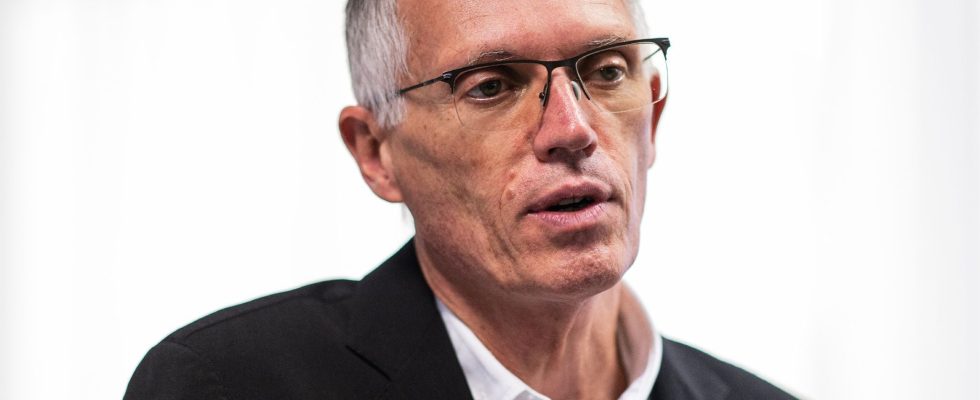On April 16, the general meeting of the Stellantis group approved remuneration of 36.5 million euros for Carlos Tavares, its CEO. Among the wave of comments that this announcement did not fail to arouse, there was one which, by its apparent incongruity, deserves attention.
This is the comparison between the income of big bosses and those of footballers. Would the former be to the economic world what the latter are to professional sport? Carlos Tavares, the Kylian Mbappé of the market? The question is deeper than it seems. Because one of two things: either the answer is affirmative, and there is no reason to be more indignant about the salary of the first than about the wealth of the second; either it is negative, and we must question the reasons which lead shareholders to pay so much to someone devoid of talent.
The talent. This is the crux of the debate. Everyone recognizes Mbappé’s. You just have to watch him run, dribble, score, to admit that you couldn’t do what he does. He deserves his salary because he has a talent that we lack. And for his club, this translates into more spectators, constant enthusiasm, the sale of jerseys, so many profits that must be shared with the player, otherwise, he will go elsewhere, to a competitor ready to put the price.
We can win without a striker, not without a midfielder
It is the evidence of his unique talent which explains our admiration and therefore his remuneration. However, football connoisseurs all say it, the essential thing to win matches is not the scorer but the midfielder. No team wins a championship, the Champions League, the Euro or the World Cup without a talented trio or quartet to recover the balls and organize the offensive game. We can win without a striker, not without midfielders. Spain has provided proof of this. How then can we explain that attackers earn and earn more than midfielders, and themselves more than defenders and full-backs, as Jose Luis Felipe and his co-authors observe in an article entitled “Money Talks: Team Variables and Player Positions that Most Influence the Market Value of Professional Male Footballers in Europe” (Sustainability 2020).
The answer is simple. The talent of midfielders is more difficult to estimate than that of attackers. Even someone who knows nothing about football will be able to assess the talent of an attacker. If he scores, he’s good. But for the midfielder, the one who organizes the game, runs without the ball, does the recovery work, it’s more complicated. To properly appreciate a shadow player, you have to be a real football technician. However, there are fewer true connoisseurs than simple amateurs. Which means midfielders will have less visibility, fewer fans, smaller advertising contracts and sell fewer jerseys.
In other words, on the ground, the one who counts the most is not necessarily the best paid; because we do not perceive his true talent. Hence this situation, sportingly unfair but economically logical, where the attacker is better paid than the one who puts him in a position to shine.
Shadow player
And in the company? Well, it’s the same thing, or almost. To accept the remuneration of a big boss, we would have to be able to estimate his talent, that is to say, what he brings to the company that we would be incapable of providing ourselves. Except we don’t see what he does. We have no idea of his daily work, of his role in the team’s play. We see clearly what the worker, the forklift driver, the laborer does, a little less what the engineer or the lawyer does, but we know nothing of what the manager does. He is the shadow player. In our mind, therefore, he does nothing in particular, nothing in any case that someone else could not do. And therefore, we believe that his salary should not be higher than ours.
Why is he paid so much in this case? The answer is simple, provided you understand that there is a fundamental difference between a football club and a large company. If the club pays the striker so much, it’s because his image sells. The player is the product in a way. In a large company, the reputation of employees matters little. We don’t buy a product because we are a fan of the manager or a particular employee, but because it meets our needs at the best price.
From then on, remuneration will be commensurate with the real talent of each individual, and not with the public’s perception of it. And in this game, the person who defines the strategy, rethinks the organization and turns around a bankrupt company has an essential, inestimable value, even if no one outside the company knows him or knows what he actually does. . Better yet, what proves his talent is precisely the fact that the company survives and develops while we do not understand what he does; proof that we would be incapable of doing the same.
Basically, those who are more shocked by the salary of big bosses than by that of footballers express only one thing: their inability to estimate the talent of the former, due to lack of economic culture or overestimation of their skills. So Carlos Tavares and Mbappé, same fight, same talent? No, the first one is probably better. It is the gap between his income and his popularity which confirms this.
*Pierre Bentata is a lecturer in economics at the Faculty of Law and Political Science of Aix-Marseille
.
